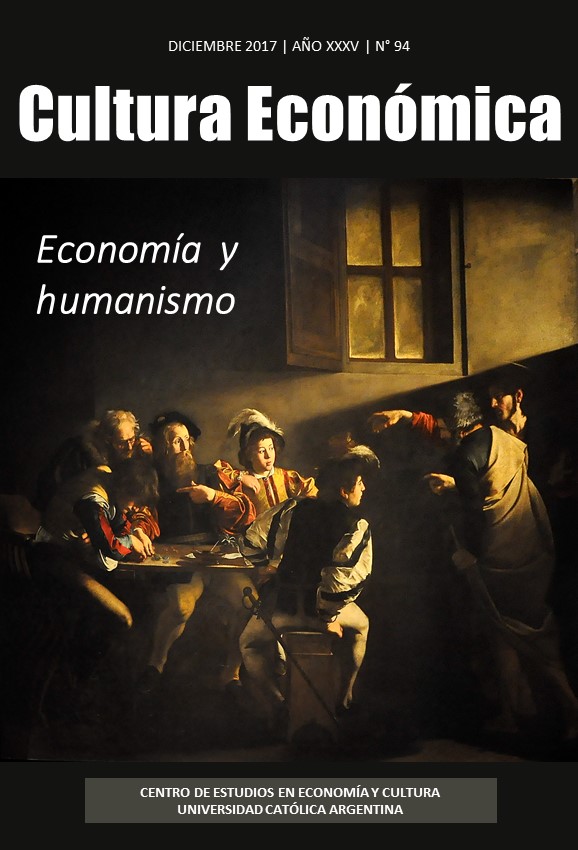There is no Good Leader without a Humanist Education. The Classical Proposal before the Sure Failure of Economic Futurism
Keywords:
ETHICS, MODERNITY, HUMANITIES, LEADERSHIP, ECONOMIC GROWTHAbstract
This work focuses on demonstrating the importance of humanistic education for good leadership. The modern capitalist democratic system, based on the pillars of enrichment and technique, has replaced classical ethics by a set of rules imposed on the individual from outside. The author proposes to recover the study of the humanities that attend to the three basic dimensions of human existence - space, time and transcendence - to restore true ethics. Leaders trained in virtues will make possible the creation of common good, essential to economic growth.Downloads
References
Eucken, Walter (2017). Principios de Política Económica. Aranzadi, Pamplona.
Millán-Puelles, Antonio (1973). Persona humana y justicia social. Rialp, Madrid.
Olier, Eduardo (2017). Los ejes del poder económico. Geopolítica del tablero mundial. Pearson, Madrid.
Pieper, Josef (2012). Las virtudes fundamentales. Rialp, Madrid.
Rovira Reich, Ricardo (2012). La educación política en la Antigüedad clásica. BAC, UNED, Madrid.
Sastre, Raquel (2012). La dirección de las Organizaciones. Eudeba, Buenos Aires.
Sendagorta, Enrique (2004). El afecto a la empresa. Eiunsa, Madrid.
Sison, Alejo José G. (2014). Happiness and virtue ethics in business. Cambridge University Press, Cambridge.
Spaemann, Robert (2003). Límites acerca de la dimensión ética del actuar. Eiunsa, Madrid.
Downloads
Published
How to Cite
Issue
Section
License













